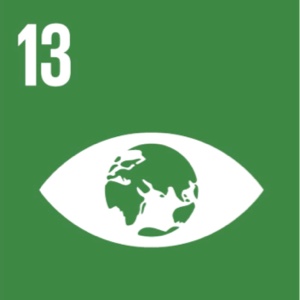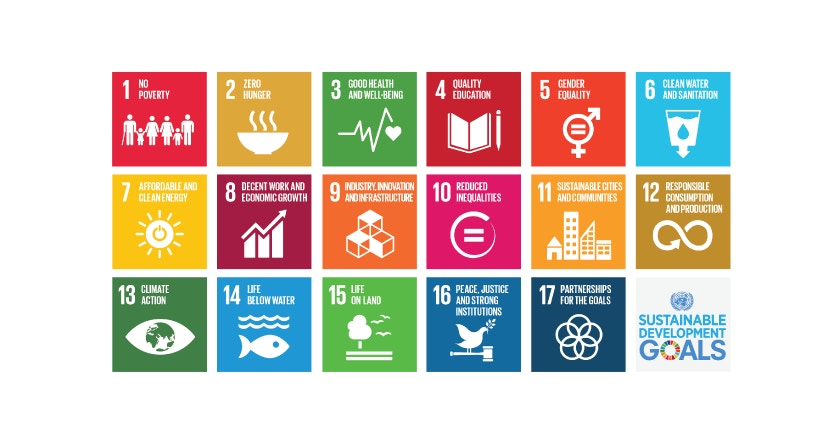Claims Consultation Feedback
Can you provide more clarity between SDG contributions and Certified SDG Impacts?
As positioned in our first draft of the Claims Guidelines, SDG contributions under Gold Standard for the Global Goals equated to what have been known historically as a project’s ‘co-benefits.’ Because the sustainable development dimensions of Gold Standard projects are equally important as the greenhouse gas reductions, we seek to prevent them from being seen as side effects or after thoughts of carbon mitigation, which can diminish their value.
All project impacts that have been monitored by a project developer, audited by a Gold Standard-approved third party Validation and Verification Body, and certified by Gold Standard are equally credible. The key differences of Certified SDG Impacts are that they 1) have demonstrated financial need, and 2) have applied a Gold Standard-approved methodology, and 3) can be individually monetised.
With input from the public consultation, Gold Standard appreciates that the distinction between SDG contributions and Certified SDG Impacts should be reconsidered and further clarified. This will be reflected in the next draft of Claims Guidelines.
Can you clarify who can claim what in projects issuing multiple certified impacts?
Any funder who provides financial support to a Gold Standard project or its individual or collective impacts can describe the full impact of that project. They must, however, disclaim precisely and clearly what their individual funding supported. For example, if a project issues both verified emission reductions (VERs) and Averted Disability-Adjusted Life Years (ADALYs), the VER buyer should claim to have funded the greenhouse gas emission reductions from a project that also improved health and created new local jobs. The funder of ADALYs should claim to have funded the health impacts from a project that also reduced greenhouse gas emissions and created new local jobs. Guiding principles for funder claims should be clarity and full disclosure.
Why does Gold Standard plan to restrict some health claims that have been made in the past?
Gold Standard must protect its projects, project developers, and funders of those projects from accusations of over-claiming, greenwashing, or ‘SDG-washing.’ This is essential to maintain the integrity and reputation of Gold Standard and all its various stakeholders. Increasing evidence around the proven health impacts of different types of clean cookstoves in different settings has elevated this issue to one Gold Standard has determined must be more carefully managed in the claims context. It’s important to note that projects do not need to apply the Gold Standard ADALYs methodology in order to make health related claims. However, to ensure credibility and rigour, any health-related claims do require expert stakeholder input and clear academic justification.
Will Gold Standard take care to avoid discouraging buyers/funders with burdensome claims regulations?
Gold Standard appreciates stakeholder feedback in highlighting what claims regulations might discourage potential funders. We will seek to balance the need for credibility with practicality in the next version of the Claims Guidelines.
What is the demand for the new products?
We are in the process of a market research initiative funded by the Climate & Clean Air Coalition and the Global Alliance for Clean Cookstoves. This is investigating sources of demand specifically for those impacts relevant to clean cooking and heating technologies -- black carbon and short-lived climate pollutant (SLCP) reductions, health, poverty alleviation, gender equality and renewable energy access. This effort is evaluating the merits/efficacy of valuation approaches for funding these impacts and the level of rigour or assurance required to verify impacts.
Preliminary observations suggest that the sources of funding vary quite widely. Impacts that not only deliver social benefits but also demonstrate reduced costs of government spending – like ADALYs – resonate most with public funders and foundations looking for innovative mechanisms to ensure the effectiveness of their funding in their priority regions. Private sector funding among corporates shows the preference for impacts that have close relevance to core business. This indicates a broadening of the potential universe of corporate funders beyond today's carbon credit buyers to those interested in the quantification and certification of the climate and other SDG impacts of their sustainability initiatives. The research will be complete at the end of June 2017 and the report will be published thereafter.
What is Gold Standard doing to stimulate demand for existing carbon credits?
Our approach has been to address each of the various barriers we identified as limiting the potential for corporates to purchase Gold Standard credits.
Broaden the narrative around offsetting to focus on its ability to finance the low-carbon transition, in order to appeal to new market entrants who had not been inspired by the concept of offsetting. This is why you will see fewer references to the word “offsetting” in our communications that are focused on corporates. However, our call to action to support Gold Standard projects as part of a credible climate strategy is loud and clear.
Make advocates of civil society influencers. Our work to build consensus with CDP and WWF in conjunction with the Science Based Targets initiative has progressed considerably. The output of this collaboration will feature a clear call to action and we hope to publish the official output of this collaboration in the summer or early fall of 2017. This signals a major shift among organisations who are key influencers to corporate sustainability strategies.
Expand corporate focused outreach. In May, Gold Standard presented at the Carbon Market Institute, Australia annual summit as well as Ceres in San Francisco, both well attended by major corporates. We are sponsors of Ethical Corporation’s Responsible Business Summit in June and will share the stage with Aviva’s CEO for the climate keynote. We will have a strong presence at Climate Week NYC in September and are scheduled to present at Companies Vs Climate Change Europe in October.
Lobby for Gold Standard credits inclusion in CORSIA. On the policy level, we have been partnering with WWF, who is party to the IATA negotiations, to lobby for strong environmental integrity and sustainable development in CORSIA, the aviation sector’s new market mechanism. Currently in development, CORSIA is expected to require 30 million additional credits each year starting in 2020, and we aim to ensure Gold Standard credits are eligible in the scheme.
Partner with UNFCCC. This collaboration elevates our brand visibility as we develop new, practical tools that streamline the certification process and encourage corporates to increase their ambition in funding climate and development projects.
Provide additional communications support to project developers. Our Project Ambassador programme is meant to provide sophisticated marketing materials to project developers who lack marketing resources. See an example of once of the printed support pieces here>>. If you would like to learn more about this programme and how Gold Standard can support your marketing efforts, contact [email protected].


